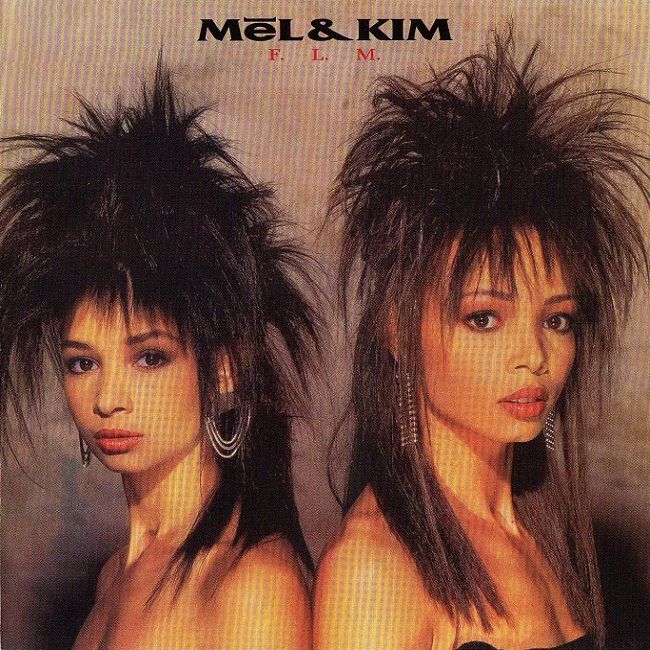13. Mel & KimF.L.M.

Where was my mind when I was making this list? This was one of my first cassettes and I just loved it. I loved the cutting, the fact that everything is cut-up. It’s like trash. It’s trash. You go through the trash and you just find stuff and it’s like, ooh, this wrapper tastes kind of chocolate-y and, ooh, this is half a piece of gum, it still tastes kind of sweet, let’s just stick it all together and make this horrible confectionery feast of empty wrappers. So that’s how I would probably see it if I heard it today but to me it was like this incredible body experience back when I was seven years old. I really loved – and I still kind of love – that it all sounds like a remix and every song sounds like it’s just a remix of the previous song, in a way. Except that there’s a ballad somewhere in there, which I also really loved. This was exactly the time when I started listening to pop music, the horrible late ’80s production with Hi-NRG stuff. I had two favourite childhood tapes, this one and Kim Wilde and then I had a third favourite tape and that was Nina Simone. So I just chose one. The Nina Simone one I couldn’t choose because it was just a best of and I’ve talked about Kim Wilde before. So I chose this one. This album always gets bad reviews.
AllMusic calls it "one of the more insipid examples of ’80s dance-pop".
Yeah, but it’s also one of the happiest moments of Jenny’s life! Because it was made that way. It was made to be sorting out the trash. It was made to be extremely rhythmic. It’s almost like military, but happy. I do think that it does also have this experimental vibe and this true dancey vibe, because when you cut something, you cut a voice into "du-du-du-du-du…", you can choose to see it as badly produced super-glossy pop music but you can also choose to see it as, ooh, this is something that they do when they do experimental stuff, as well. This connects it to the The Spirit In Past & Present album that I just talked about. This connects it to all these other different kinds of music traditions and that’s what hip-hop has been doing for the last 30 years as well, this pulling in of other types of elements that seems very daring but it’s also very immediate. So what mainstream pop music, I guess, is about is creating immediacy in a way, at least. So this was one way of doing that and it totally worked for me.


